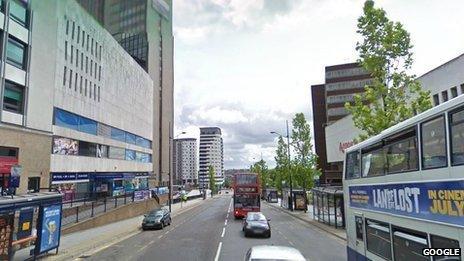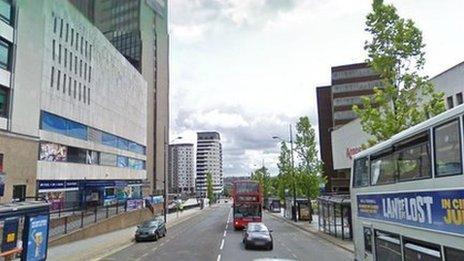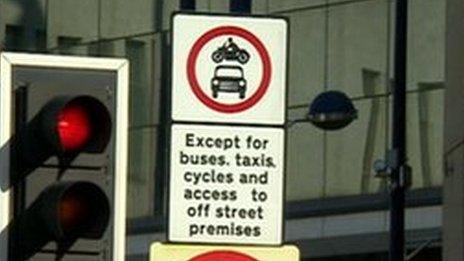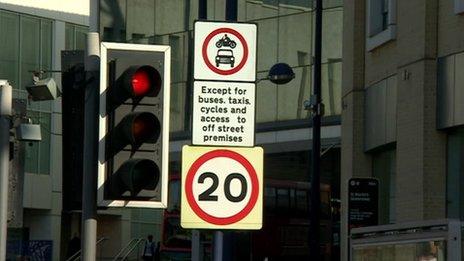Birmingham bus lane fines top £3.2m since new restrictions in force
- Published

A tribunal ruled the signs on Priory Queensway were "inadequate and confusing"
Bus lane fines have topped £3.2m in Birmingham since a camera crackdown began, a BBC Freedom of Information (FOI) request has revealed.
Cameras were put up at 10 locations last year and by June, 118,193 penalty charge notices (PCNs) had been issued.
The council's income from the PCNs is at the top end of previous estimates from £1.7m-£3.5m, the FOI has shown.
The Labour-run council denied claims it was a "money-making" move, saying income would be put into transport.
'Initial flood'
The council was paid £3,244,247 for the 88,302 PCNs paid by 30 June 2014, according to the FOI. Other cases are being resolved.
Drivers who paid within 14 days of receiving a PCN could pay a 50% discounted fine of £30. If paid within 28 days, the penalty was £60, and £90 if it was late.
In February, a tribunal found signage was inadequate or confusing at three of the 10 locations: The Priory Queensway from Colmore Circus towards Old Square; St Martin's Queensway; and Moor Street Queensway. The council came under fire after the Birmingham Mail, external broke the story.
Councillor Tahir Ali, responsible for transport, previously said the council would not allow drivers' retrospective appeals, nor would it enforce 18,000 unpaid, disputed fines.
'Not money-making'
Tory Councillor Timothy Huxtable, from the economy and transport overview and scrutiny committee, said the introduction of the Metro had meant less room for buses on some streets, which meant the existing bus lanes needed to be enforced.
"However, the current cabinet member has, in my opinion, treated this as an opportunity to raise money," he said.
The council introduced extra signage at those three locations between April and June, which a spokeswoman said exceeded the tribunal's recommendations.
Labour Councillor John O'Shea, who also sits on the committee, stressed it was "not a money-making scheme".
"Although there may have been an initial flood of penalties, that is likely to reduce significantly once people get the message," he said.
- Published11 July 2014

- Published6 March 2014

- Published26 February 2014

- Published30 January 2014

- Published29 November 2013

- Published24 October 2013
